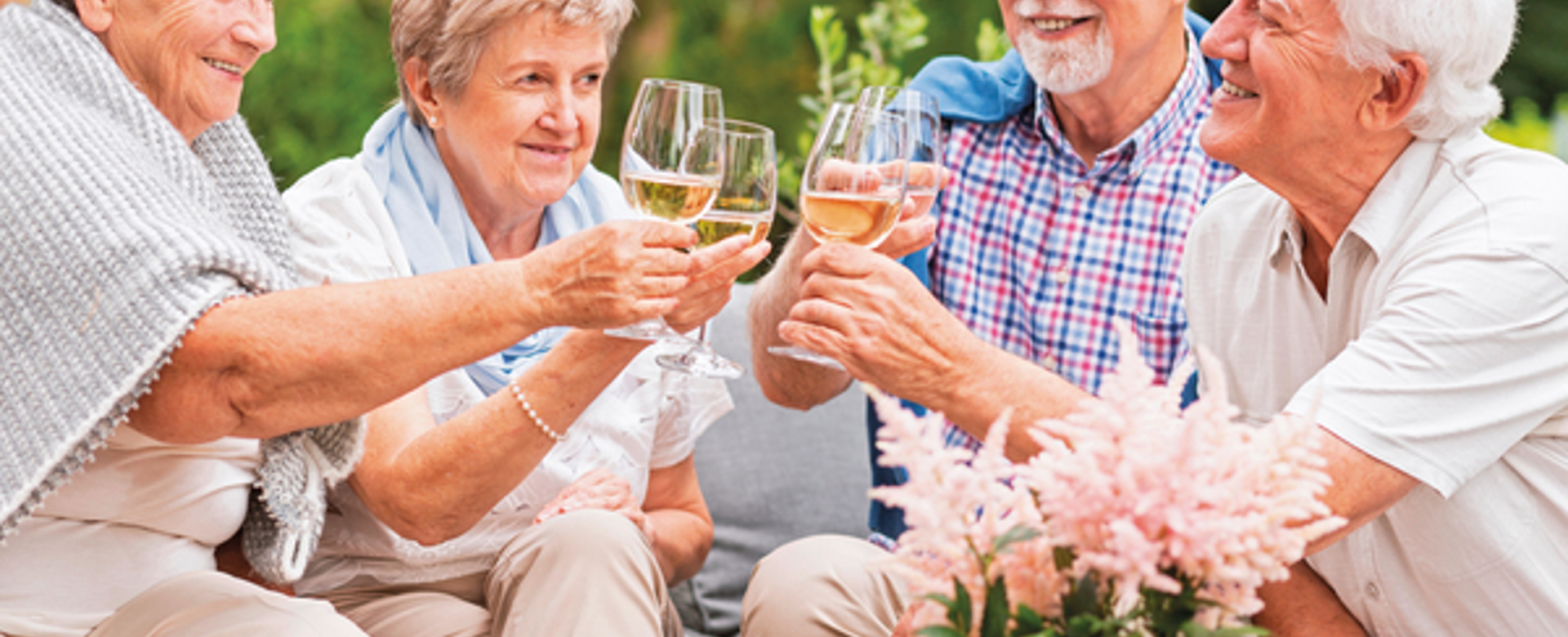
How to make friends in your 50s and beyond: 11 tips
A 2023 Age UK report found that social connections and friendships can significantly improve well-being - no matter what age we are, connection is always important.
As we reach our 50s, 60s, and beyond, forming new relationships can bring fresh energy and joy to our daily lives. Whether you’re in middle age, approaching retirement, or already enjoying later life, it’s always possible to meet like-minded people and build lasting connections.
If you’re not sure where to start, this guide is packed with 11 tips to help you expand your social circle and enjoy the benefits of meaningful friendships in your 50s and beyond.
11 practical ways to make friends in your 50s, 60s, and beyond
Making new friends in middle age or later life doesn’t require a major lifestyle overhaul—it’s often about making small, intentional changes to your routine or trying new activities that naturally bring people together. Here are some practical, research-backed tips to help you expand your social circle.
Become a regular at your favourite café
Frequenting a nearby café is a simple yet effective way to meet new people. Over time, you’ll get to know the existing regulars and staff.
To start, choose a spot with a welcoming atmosphere and visit at the same time each week. You’d be surprised how quickly you come to see the same faces, and how naturally conversations can start up.
If you’re nervous about going alone to begin with, take a book you’re reading, a puzzle book or some drawing supplies.

Explore a new sport or activity
Joining a local sports group is one of the best ways to meet like-minded people. Things like running clubs, tennis leagues and cycling meetups are welcoming spaces to make friends while staying active.
Here’s a list of ideas to strike up some inspiration:
-
Walking groups
-
Swimming clubs
-
Tennis clubs
-
Cycling meetups
-
Running clubs
-
Golf societies
-
Yoga classes
-
Tai chi classes
-
Dance classes
-
Bowls clubs
-
Surfing groups
The combination of physical activity and community is wonderful for our health, helping foster longevity and well-being in later life. We’ve made group exercise classes a priority across our UK retirement communities. Regular classes like Tai Chi, yoga, Zumba and dance bring residents together to do something they love and feel good.
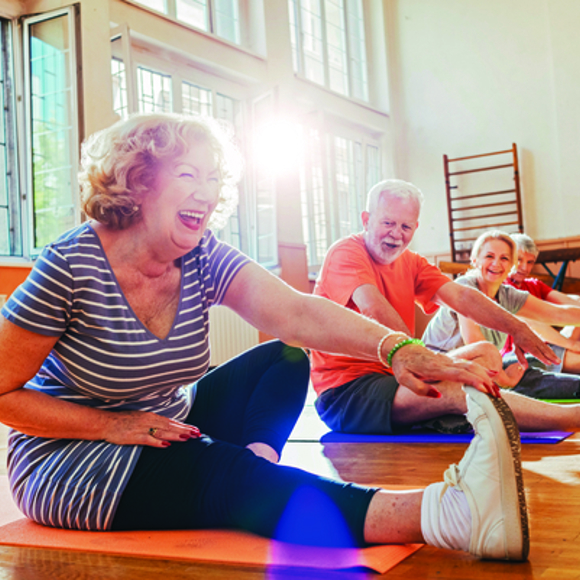
If you’re still working, get to know colleagues
If you’re not retired yet, enjoy getting to know the people you work with.
Ask a colleague to go for lunch or a lunchtime walk together. If your workplace has interest groups or committees, consider joining one to meet people with shared interests.
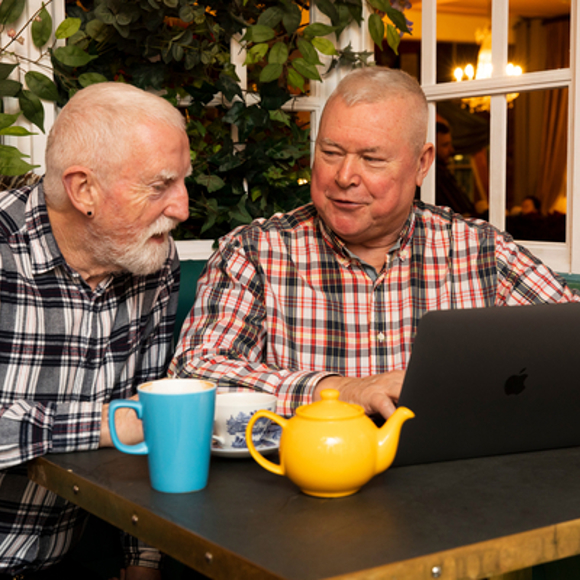
If you’re retired, reconnect with your network
Retirement offers a chance to rekindle connections with people you enjoyed working with. If you’ve lost touch, LinkedIn can be a helpful tool for reaching out.
You could also use LinkedIn to connect with others in your network who have recently retired.
Not sure how to reach out - use our simple template below and make it your own:
"Hi! It’s been a while! How’re you doing?
I thought I’d check in to see how it’s going.
I’d love to catch up! Do you feel like grabbing a coffee this week?"

Go back to school
Pursuing education later in life is a rewarding way to meet new people while expanding your skills or indulging in a passion. Whether it’s a free course, a short workshop, or even a full degree, being part of a class allows you to see the same people regularly, creating opportunities for friendships to develop naturally over time.
Where to find resources:
-
Local adult education centres: Many offer affordable or free courses in subjects ranging from art to creative writing. You can reach out to your local council for information.
-
OpenLearn by The Open University: Provides online courses on a variety of topics.
-
The Third Age Trust (U3A): A UK-wide movement offering learning opportunities specifically for those in later life.
Funding and benefits:
Many institutions offer discounts or special rates for retirees and those over 65. For instance, some universities reduce fees for mature students, and local councils may subsidise adult learning courses. Always check with the institution for eligibility criteria and available funding options.
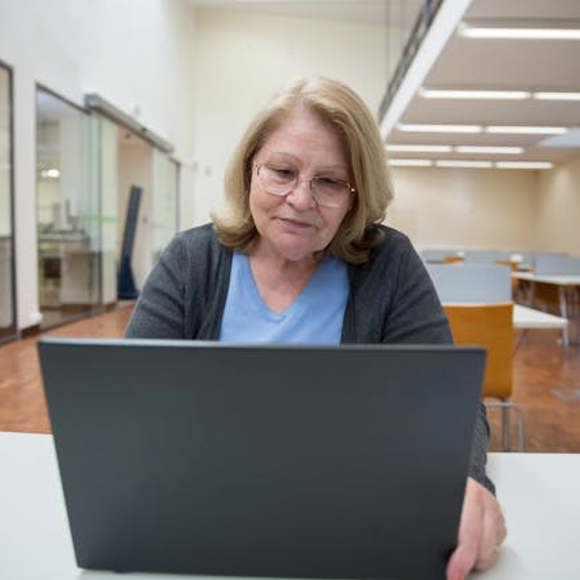
Find groups for your hobby
Hobbies are a great way to meet people at any age, so if you’re looking to make friends in your 50s, 60s and beyond, they’re a great way to get started.
They naturally bring together those with similar interests. Whether it’s joining a pottery workshop, tennis lesson or photography course, these settings allow conversations to flow easily as you work on something you enjoy.
If you’re into crafts, music, cooking, or even gardening, there’ll be a local class or community group that aligns with your passions.
Many local councils, community spaces (e.g. art galleries), and libraries host workshops or events. Sites like Meetup and Eventbrite can point you toward hobby-based gatherings nearby.
Tip: If you’re experienced or trained in a particular area, why not consider teaching a class? Sharing your skills not only lets you connect with others but also positions you as a go-to person in your local creative community.

The key is consistency—being part of a regular class gives you the chance to build connections over time and develop friendships that extend beyond the classroom.
Hosting regular social events that tap into people's passions is something our residents and team love to organise. After recent sustainability efforts across our retirement communities, we’ve seen a beautiful boost in biodiversity across our green spaces. So, we invited residents across the UK to join a photography competition to capture some of the beautiful nature scenes - residents loved getting outdoors and inspired.
Curious to see which won? You can see the winning photographs here!
Try overnight hobby events
If you’re looking to fast-track new friendships in your 50s and later life, consider attending an overnight hobby event or retreat. These immersive experiences provide an intensive burst of time to bond with others over shared interests, allowing connections to develop more quickly than in shorter settings.
You might be tempted to try:
-
Yoga retreats
-
Staying in a language school
-
Art retreats
-
Writing retreats
-
Overnight group hikes
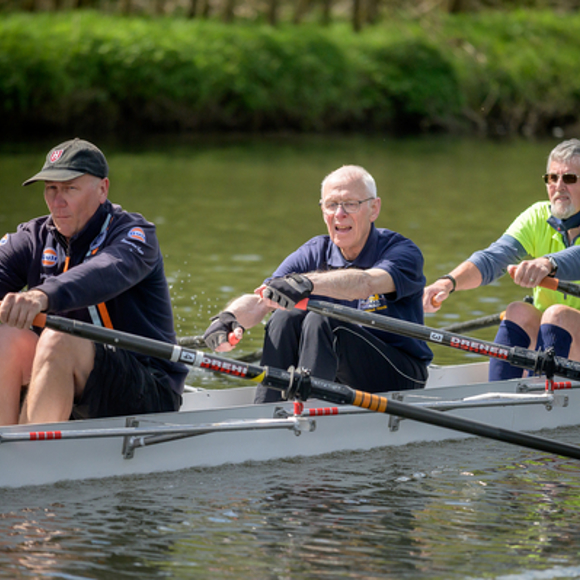
Volunteer and make a difference
Volunteering is not just about giving back - it provides a natural opportunity to meet people with shared values and work together towards a common goal. It's also a powerful way to find purpose, create structure, and feel fulfilled in retirement.
At Retirement Villages, we deeply value the positive impact of volunteering - we’ve created projects that bring residents and staff together while improving our shared spaces, like the Community Grant Adventure Playground and Janes Briggs' Sensory Garden at Surrey community, Elmbridge Village.
The sensory garden, designed to be accessible for everyone, features colourful flowers, fragrant plants, and spaces to relax, while the adventure playground is somewhere visiting grandchildren are already enjoying.
Whether you’re building a playground, tending a community garden, or helping out at an event, volunteering provides a sense of accomplishment while fostering new connections.
Get online: the best websites to make friends in your 50s and beyond
If you’re looking to expand your social circle in later life, these websites offer great opportunities to connect with like-minded people:
-
Meetup: Find local hobby groups, fitness classes, or social events; perfect for discovering ongoing or one-off activities near you.
-
Nextdoor: Connect with neighbours and discover community events like gardening groups or charity initiatives.
-
Stitch: Join a platform designed for over 50s, offering friendship groups, activity meetups, and shared travel opportunities.
-
Facebook groups: Search for UK-based groups related to your interests. You can find groups specific to the 50+ community or you can keep it broad and enjoy building intergenerational connections (something we advocate!).
-
Eventbrite: Explore local events like workshops, fairs, or retreats for a fun way to meet new people while enjoying shared activities.
-
Rest Less: A UK-based platform for over-50s, offering forums, volunteering opportunities, and hobby groups to connect with others.
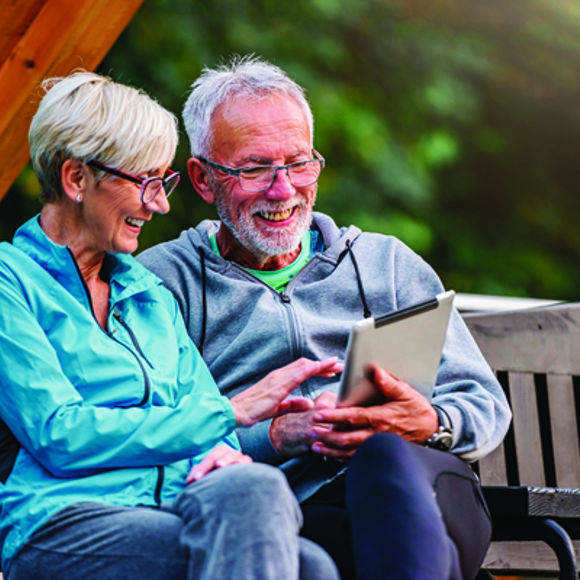
Get to know your neighbours
Sometimes, the best friendships start right next door. Whether you’re new to the area or have been around for a while, taking the first step can make all the difference. A simple “hello” or a quick chat when you cross paths can go a long way. If you’re feeling a bit more confident, why not invite a neighbour over for a cup of tea or suggest a stroll around the block?
In our retirement communities, this is second nature. People often find themselves striking up conversations during shared activities or just bumping into each other in the communal spaces, like the café or nature walks. It’s these small, everyday moments that help turn neighbours into friends.
At our new integrated retirement communities (IRCs), like Botanical Place, the design encourages connection. It’s not just about the residents—it’s about creating a space where everyone, from families to younger neighbours, can come together. Shared spaces like cafés, restaurants, the library, and even the wellness centre are all based on our community site. They’re open to locals, making it easy to build relationships that span all ages. Whether it’s a friendly chat over coffee or joining in one of the regular community events, our IRCs are all about bringing people together.
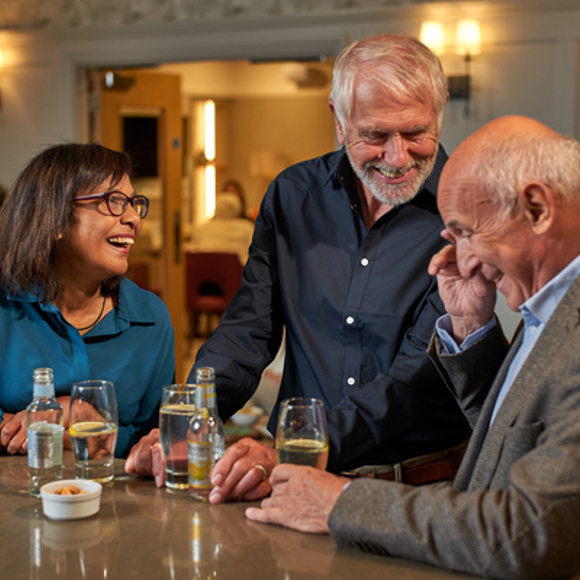
Choose a retirement community
Retirement communities offer more than just a place to live - they’re designed to help you stay active, connected and independent in your later years. By becoming a resident, you’ll enjoy a lifestyle tailored to your needs, surrounded by like-minded people and opportunities to build meaningful connections.
At our communities, the focus is on creating vibrant, welcoming spaces where friendships naturally thrive. Shared hobbies, group activities, and casual chats in the café or gardens are just the beginning. With excellent on-site facilities like restaurants, hair salons, shops, and wellness centres, there’s always something to do and someone to meet.
Living here isn’t just about convenience - it’s about enhancing your quality of life.
Find out more of the benefits of moving to a retirement community.
If you’re curious about what life is really like, why not join us for an open day? It’s a great opportunity to see what social events and community groups we have, chat with current residents about their experiences, and get a feel for day-to-day life.
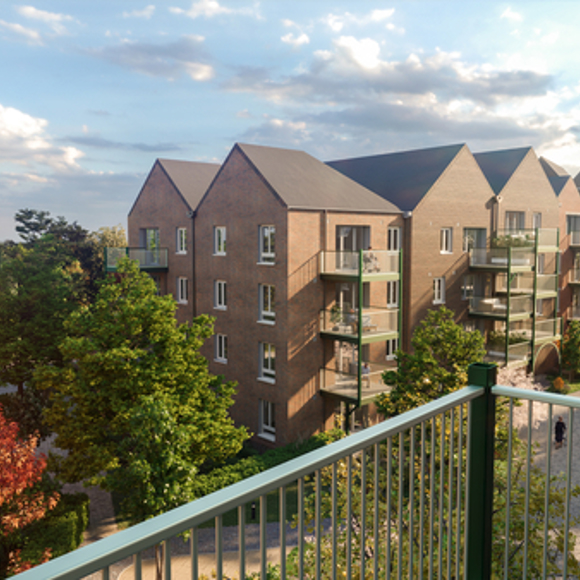
Is it harder to make friends in middle age and later life?
It’s completely normal to feel like making friends in your 50s, 60s, or beyond is more difficult than it used to be. As life changes, those built-in opportunities to meet new people can shrink, leaving us wondering how to make meaningful connections again.
But this isn’t just your experience - it’s a common challenge many people face. Research shows that forming close friendships takes time and repeated interactions. It’s not unusual for a friendship to need months of consistent effort to grow. The good news is that most people are open to connection - they’re just waiting for someone to take the first step.
If you’re feeling unsure about how to meet people, start by focusing on what you enjoy. Joining a hobby group, attending community events, or even reconnecting with old friends are all great ways to build connections naturally. Friendships in later life are about quality, not quantity—finding even one or two people who share your interests can make a big difference.
The tips above can help you if you're looking to make new friends in middle age and beyond.
How retirement communities make friendship easy
Making friends later in life doesn’t have to be complicated. It’s about creating opportunities—whether through shared hobbies, reconnecting with old acquaintances, or becoming part of a community that encourages connection.
Retirement communities make this even easier. With events, activities, and communal spaces designed to bring people together, they offer a natural setting for forming meaningful relationships. At Retirement Villages, residents often find that friendships happen effortlessly—through group activities, casual chats, or simply living in a space designed for connection.
Discover our villages or visit us to find out more about life here.
Properties for sale Properties to rent